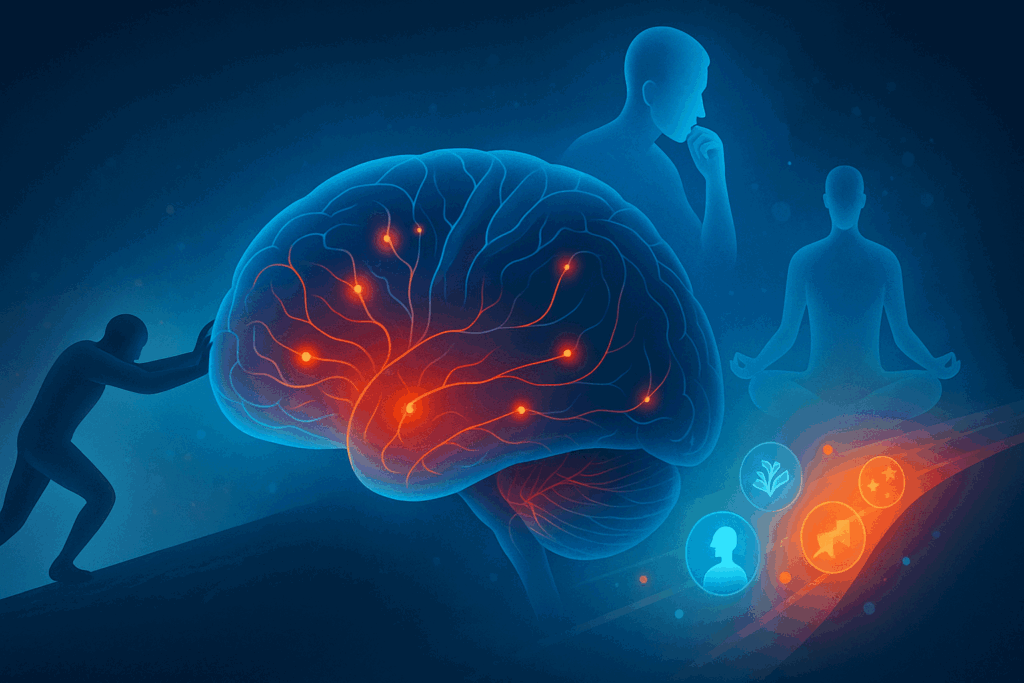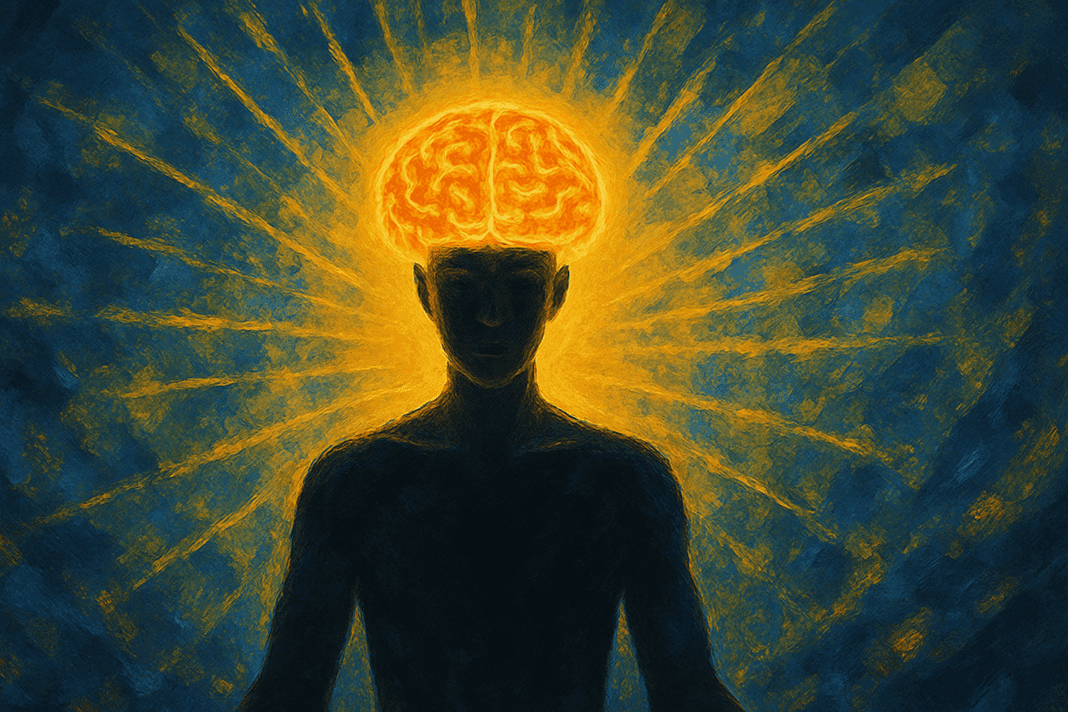In the pursuit of peak mental performance, many people focus on tactics like better time management, mindfulness, or cognitive training exercises. Yet, what often goes unnoticed is the pivotal role of one internal asset that quietly dictates our trajectory in both high-pressure moments and the everyday grind: the strongest character feature. This unassuming psychological asset may not have the flashiness of a new productivity app or the allure of a nootropic supplement, but its power is far more enduring. Whether you’re navigating academic challenges, professional ambitions, or personal growth, the cultivation and application of your strongest character feature can elevate your cognitive capabilities and emotional resilience beyond conventional boundaries.
You may also like: The Essential Mental Shift: How to Train Your Mind to Be Stronger for Peak Performance

Understanding the Foundations of Character Strengths
Character strengths are the core virtues and values that guide our thoughts, decisions, and behaviors. These are not superficial traits like charisma or charm; instead, they are deeply embedded in our personality and moral framework. Psychological research, especially from the field of positive psychology, has identified a broad taxonomy of strengths—such as courage, perseverance, honesty, humility, and gratitude—that collectively contribute to a fulfilling and purpose-driven life. However, among these, there often exists one particularly dominant quality: the strongest character feature. This singular trait acts as an anchor, providing clarity, motivation, and direction even during tumultuous times.
Unlike skills, which can be acquired through learning, or talents, which may be innate and narrowly defined, character strengths are morally valued traits that span across cultures and are tied to human flourishing. Importantly, these traits are not static. While everyone possesses all character strengths to varying degrees, the strongest character feature stands out due to its frequency, impact, and authenticity in an individual’s life. For example, someone whose dominant trait is perseverance may consistently show up for themselves and others, even in the face of adversity, whereas someone whose feature is curiosity may exhibit an insatiable drive to explore, understand, and innovate.

Psychological Insights into Strong Character Traits
The strongest character feature is not just a moral compass; it’s a neurological lever. Neuroscience has shown that traits like perseverance and self-control are linked to specific brain regions, including the prefrontal cortex, which governs executive function. When these traits are activated, they influence decision-making, focus, and emotional regulation—key ingredients for peak mental performance. Moreover, research in neuroplasticity suggests that repeatedly engaging a strong character trait can actually reshape brain pathways, making positive behaviors more automatic over time.
From a behavioral standpoint, the strongest character feature also serves as a buffer against cognitive overload. In stressful or ambiguous situations, individuals tend to revert to their strongest traits as a default coping mechanism. For instance, someone with a strong trait of humility may respond to a failure not with defensiveness, but with a willingness to learn and grow. This reflexive strength response reduces mental fatigue and accelerates recovery from setbacks, which are both critical to maintaining high levels of performance over extended periods.
The development of strong character traits is also closely tied to early life experiences, social environment, and deliberate practice. Unlike fleeting emotional states, these traits exhibit stability over time and across different contexts. Yet, this stability does not imply rigidity. On the contrary, the strongest character feature can evolve in response to life events, feedback, and introspection, making it a dynamic asset in one’s psychological toolkit.

The Strongest Character Feature as a Catalyst for Motivation and Discipline
Motivation and discipline are often viewed as the external behaviors that fuel success, but at their root lies a powerful internal engine. That engine is frequently driven by the strongest character feature. When individuals align their goals with their most dominant trait, motivation becomes intrinsic and sustainable. For example, someone with a strong trait of zest may naturally bring enthusiasm and energy into even mundane tasks, thereby reducing the need for external rewards or pressures.
Discipline, often misunderstood as mere willpower, is more accurately described as consistent alignment with one’s values and goals. This alignment is exponentially easier when it flows from a character strength that already defines the person’s identity. For instance, a person whose strongest character feature is responsibility may find it almost second nature to follow through on commitments, not because of an external obligation, but because doing so affirms their sense of self. In this way, character and discipline reinforce each other, creating a positive feedback loop that elevates performance.
Moreover, the synergy between character and discipline is particularly evident in goal-setting strategies. SMART goals—those that are specific, measurable, achievable, relevant, and time-bound—become far more impactful when they are also strength-aligned. A goal that resonates with one’s strongest trait is not only more likely to be pursued with vigor, but also more likely to be maintained over time. This is crucial in academic and professional settings, where long-term focus and perseverance often determine success more than raw talent.

Harnessing the Strongest Character Feature in High-Stakes Environments
Peak performance is often tested not in routine conditions, but in high-stakes environments characterized by uncertainty, pressure, and the need for rapid adaptation. In such contexts, the strongest character feature can serve as both a compass and a stabilizer. It provides a consistent reference point that helps individuals maintain clarity and composure amidst chaos. For instance, a leader whose defining trait is integrity may navigate a corporate crisis with transparency and fairness, thereby maintaining trust and cohesion within the team.
The utility of strong character traits is particularly evident in fields that demand high emotional intelligence and strategic thinking. Athletes, surgeons, military officers, and entrepreneurs frequently operate in volatile conditions where momentary lapses in judgment can have serious consequences. Here, traits like self-regulation, courage, and prudence can mean the difference between success and failure. These traits not only guide behavior but also shape perception—affecting how challenges are interpreted and how risks are assessed.
Moreover, the presence of a dominant character trait can enhance resilience. In the aftermath of failure or trauma, individuals who can draw on their strongest character feature are often better equipped to rebuild their confidence and re-engage with their goals. This psychological resilience is not just about “bouncing back” but about integrating the experience into a broader narrative of growth. In doing so, individuals not only recover but often emerge stronger and more focused.
Why the Strongest Character Feature Outperforms Talent in Sustaining Success
Talent is undeniably valuable, but it is not the most reliable predictor of sustained success. Numerous longitudinal studies have shown that while talent may offer an early advantage, it is often overshadowed by traits like perseverance, conscientiousness, and emotional intelligence in the long run. The strongest character feature functions as a stabilizing force that keeps individuals anchored to their purpose, even when external circumstances fluctuate.
Unlike talent, which can be highly context-dependent, character traits are portable across different domains. A strong trait of curiosity, for instance, can be just as beneficial in scientific research as in artistic exploration or entrepreneurial ventures. This versatility makes strong character traits invaluable in a rapidly changing world where career shifts and interdisciplinary collaborations are increasingly common. In contrast, narrow talents may become obsolete or less relevant over time.
Additionally, character-driven individuals are often more coachable and receptive to feedback. They are less likely to be derailed by ego or defensiveness and more likely to engage in deliberate practice—the kind of focused, sustained effort that research shows is critical for mastery. In this way, the strongest character feature not only enhances current performance but also accelerates long-term growth.
The Role of Self-Awareness in Activating Strong Character Traits
Self-awareness is the linchpin that allows individuals to identify and leverage their strongest character feature effectively. Without a clear understanding of one’s inner landscape, even the most potent traits can remain dormant or misapplied. Tools such as the VIA Character Strengths Survey or reflective journaling exercises can provide valuable insights into which traits are most central to a person’s identity.
However, self-awareness goes beyond self-assessment. It also involves recognizing how one’s traits interact with different environments, challenges, and social contexts. For example, a person with a strong trait of fairness may need to be mindful of how this value plays out in hierarchical structures where not all decisions can be egalitarian. By understanding these nuances, individuals can apply their strengths more strategically, maximizing their positive impact while minimizing potential downsides.
Cultivating self-awareness also requires humility—the acknowledgment that growth is always possible and that strengths can be refined through feedback and experience. This mindset transforms character from a static attribute into a dynamic resource that evolves alongside personal and professional development. In doing so, it positions the individual for sustained excellence and deeper fulfillment.

Integrating the Strongest Character Feature into Team Dynamics
While much of the discussion around strong character traits focuses on individual performance, their influence extends into group dynamics as well. Teams that understand and leverage each member’s strongest character feature can achieve greater cohesion, productivity, and innovation. This is because strengths-based collaboration fosters mutual respect, reduces friction, and amplifies collective intelligence.
For example, a team comprising individuals with diverse dominant traits—such as one person with creativity, another with prudence, and a third with leadership—can tackle complex problems more effectively than a homogenous group. Each member brings a unique lens and set of capabilities, creating a rich tapestry of perspectives. However, this synergy requires awareness and intentionality. Teams must cultivate a culture where strengths are acknowledged, celebrated, and aligned with roles and responsibilities.
Leaders play a critical role in this process. By modeling authenticity and inviting others to do the same, they create a psychological safe space where team members feel empowered to contribute their best selves. Moreover, leaders who understand their own strongest character feature can better manage stress, make ethical decisions, and inspire others through congruence and clarity. This alignment between character and leadership behavior is not just motivational—it is strategically advantageous.

The Neuroscience Behind Character and Cognitive Endurance
Cognitive endurance—the capacity to sustain focus, decision-making, and emotional regulation over time—is a cornerstone of peak mental performance. Emerging research in neuroscience indicates that strong character traits are deeply intertwined with the brain’s executive functions. Specifically, traits such as perseverance, self-control, and optimism have been linked to the activation of the dorsolateral prefrontal cortex and the anterior cingulate cortex, areas involved in goal-directed behavior and conflict resolution.
When individuals engage their strongest character feature, they are not just behaving differently—they are thinking differently. Their neural circuits operate more efficiently, reducing the cognitive load required for complex tasks. This neural efficiency translates into higher performance with lower mental fatigue, a combination that is especially valuable in high-demand settings like academia, healthcare, and competitive sports.
Moreover, the emotional benefits of character strengths should not be underestimated. Positive emotions, which are often a byproduct of acting in alignment with one’s values, have been shown to broaden cognitive capacity and enhance problem-solving. This emotional-cognitive feedback loop creates a self-reinforcing cycle that sustains both well-being and high performance.
Frequently Asked Questions: The Strongest Character Feature and Peak Mental Performance
Understanding How the Strongest Character Feature Shapes Cognitive Growth
How can identifying my strongest character feature improve my ability to learn new skills?
Identifying your strongest character feature can create a tailored path for acquiring new skills more efficiently. For example, if your dominant trait is curiosity, you’re more likely to remain engaged during the learning process, seek out new information independently, and ask meaningful questions that deepen your understanding. On the other hand, if perseverance is your strongest quality, you’ll likely push through plateaus in skill acquisition without losing momentum. By aligning learning strategies with your strongest character trait, you create a psychologically supportive environment that encourages both resilience and sustained interest. This alignment reduces burnout and fosters long-term growth by building on your natural strengths instead of working against them.
Can strong character traits evolve over time, and how do they influence mental agility?
Strong character traits are dynamic and can evolve through experience, reflection, and intentional practice. While the core tendencies may remain stable, individuals can amplify or refine their strongest character feature as they navigate life’s challenges. As traits mature, they enhance mental agility by enabling quicker adaptation to change and better emotional regulation. A person who develops humility over time, for instance, becomes more open to feedback, which fosters continuous learning. This adaptability strengthens neural connections involved in cognitive flexibility, further supporting peak performance in diverse situations.
What role does the strongest character feature play in preventing burnout?
Burnout often results from a mismatch between one’s environment and internal values. When you operate in alignment with your strongest character feature, you experience greater psychological congruence, which buffers against stress. For instance, someone whose dominant trait is gratitude may maintain a positive outlook even during challenging periods, finding meaning in their efforts and reducing emotional exhaustion. Similarly, individuals led by integrity are less likely to compromise on their boundaries or ethics, avoiding the internal conflicts that often accelerate burnout. Over time, honoring your strongest character trait provides a deep sense of purpose, which acts as a protective factor against chronic fatigue and disengagement.
Are there any tools or methods to measure and strengthen strong character traits in adults?
Yes, tools like the VIA Character Strengths Survey and the CliftonStrengths Assessment provide research-backed frameworks for identifying dominant personality traits. These assessments offer personalized reports that can guide goal-setting and behavior change. Beyond identification, techniques such as strengths journaling, visualization, and narrative therapy can reinforce your strongest character feature. For example, writing about moments when your key trait made a difference can enhance self-awareness and reinforce positive behavior loops. Moreover, engaging in communities or mentorships that reflect your core values can further embed those traits into your identity and daily routines.
Using the Strongest Character Feature in Social and Professional Interactions
How can the strongest character feature be leveraged to improve team collaboration?
Understanding and using your strongest character feature in team settings creates trust and predictability. For instance, a team member with a strong character trait of fairness can mediate conflicts objectively and ensure equitable participation. When each team member recognizes and communicates their core strengths, roles can be assigned more strategically, reducing overlap and tension. This strengths-based approach allows teams to function more cohesively and creatively. Furthermore, awareness of others’ strongest traits enables more effective support and feedback, promoting a culture of psychological safety and mutual respect.
Is it possible for the strongest character feature to conflict with workplace culture, and how can that be resolved?
Yes, there can be a disconnect between individual character strengths and organizational norms. For example, someone with a strong trait of empathy may struggle in a high-pressure sales environment that values competitiveness over compassion. In such cases, resolution involves finding nuanced ways to express your character feature without clashing with the broader culture. This may include setting boundaries, seeking teams or roles more aligned with your values, or initiating culture-shifting conversations with leadership. Over time, people who stay true to their strongest character feature often become catalysts for ethical and inclusive change within their organizations.
How can strong character traits influence leadership styles in high-stakes environments?
Leaders who operate from their strongest character feature exhibit authenticity and consistency, which are essential in high-stakes situations. A leader with a dominant strength of prudence, for example, will naturally approach crises with careful planning rather than rash decisions. This kind of grounded leadership reduces panic and improves decision-making among team members. Strong character traits also guide moral judgment, ensuring that leaders make choices that align with long-term values rather than short-term gains. Such alignment enhances credibility and inspires loyalty, even in volatile or uncertain conditions.
The Strongest Character Feature and Personal Growth Beyond Performance
What are the long-term psychological benefits of developing strong character traits?
Over time, cultivating strong character traits contributes to a more integrated sense of identity and higher emotional intelligence. Individuals who frequently operate from their core strengths often report increased life satisfaction, reduced anxiety, and improved social relationships. These traits also foster purpose and direction, which are critical components of psychological well-being. Moreover, people who live in alignment with their strongest character feature are more likely to engage in prosocial behavior, such as volunteering or mentoring, which further enriches their emotional health. The cumulative effect is a resilient mindset capable of thriving amid both success and adversity.
Can children and adolescents benefit from identifying their strongest character feature early on?
Absolutely. Early identification of a child’s strongest character feature can shape their development in transformative ways. When parents and educators nurture these traits, children build confidence and a sense of autonomy. For example, a child with a strong trait of creativity may flourish in environments that allow for exploration and imaginative expression, while a child with a strong sense of justice may thrive when given opportunities to lead or advocate. By reinforcing these traits early, adults help young people form a stable identity, improve academic motivation, and build resilience that serves them throughout life. Additionally, strength-based education fosters inclusivity and reduces behavior problems by focusing on what each child does well.
In what ways might the strongest character feature guide career decisions?
Your strongest character feature can serve as a compass when evaluating potential career paths. Someone whose dominant trait is bravery might be naturally drawn to roles in emergency response, activism, or entrepreneurship, where risk-taking is an asset. In contrast, individuals with a strong trait of love of learning may gravitate toward research, academia, or analytical roles. Recognizing these tendencies allows individuals to select careers where they feel energized and authentically themselves. This alignment enhances both performance and satisfaction, reducing the likelihood of burnout or career dissatisfaction. Ultimately, integrating your strongest character feature into your career strategy transforms work from a source of stress into a platform for self-expression and impact.
Conclusion: Embracing Your Strongest Character Feature for Lifelong Peak Performance
In the quest for peak mental performance, it is easy to get lost in external tools, techniques, and tactics. But the true cornerstone of sustained success lies within. The strongest character feature is more than a personal virtue—it is a strategic asset, a neurological enhancer, and a psychological compass. It fuels motivation, sustains discipline, enhances resilience, and enriches our interactions with others.
For college graduates and high achievers navigating the complexities of modern life, recognizing and cultivating this internal asset is not a luxury but a necessity. By aligning our actions with our deepest values and strongest traits, we create a foundation for consistent growth, meaningful impact, and enduring success. Whether in academia, the workplace, or personal life, your strongest character feature can be the invisible force that propels you forward—quietly, powerfully, and authentically.
Further Reading:
7 Traits That People With a Strong Character Have
15 Strongest Character Traits That Will Transform Your Characters





